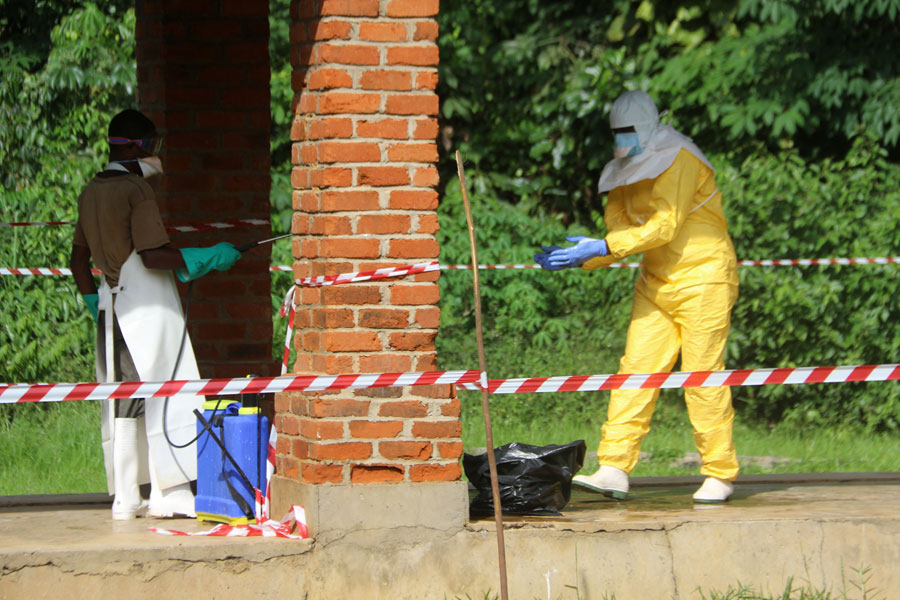WHO chief takes stock of Ebola crisis
China Daily | Updated: 2018-05-14 11:02

GENEVA - The World Health Organization warned on Saturday that stopping the latest Ebola outbreak in the Democratic Republic of Congo will be a serious, tough and costly challenge.
WHO Director-General Doctor Tedros Adhanom Ghebreyesus was scheduled to travel to DR Congo over the weekend to take stock of the situation and direct the continuing response in support of the national health authorities.
"WHO staff were in the team that first identified the outbreak. I myself am on my way to the DRC to assess the needs first-hand," said Doctor Ghebreyesus.
"I'm in contact in the minister of health and have assured him that we're ready to do all that's needed to stop the spread of Ebola quickly. We are working with our partners to send more staff, equipment and supplies to the area."
An outbreak of Ebola in Bikoro health zone, Equateur Province, was declared four days ago. The location is 250 kilometers from Mbandaka, capital of Equateur Province in an area of the country that is that is very hard to reach.
As of Friday, 34 Ebola cases had been reported in the area in the past five weeks, including two confirmed, 18 probable (deceased) and 14 suspected cases. Five samples were collected from five patients and two have been confirmed by the laboratory.
"This is the country's ninth Ebola outbreak and there is considerable expertise in-country," said Doctor Matshidiso Moeti, WHO regional director for Africa. "However, any country facing such a threat may require international assistance."
The current response plan to the outbreak includes surveillance, case investigation, and contact tracing; community engagement and social mobilization; case management and infection prevention and control; safe and dignified burials; research response including the use of ring vaccination and antivirals; and coordination and operations support.
"It is too early to judge the extent of this outbreak," said Doctor Peter Salama, WHO deputy director-general for Emergency Preparedness and Response.
"However, early signs including the infection of three health workers, the geographical extent of the outbreak, the proximity to transport routes and population centers, and the number of suspected cases indicate that stopping this outbreak will be a serious challenge. This will be tough and it will be costly. We need to be prepared for all scenarios."
For now the WHO has listed the risks to surrounding countries as moderate, and has already alerted those countries and is working with them on border surveillance and preparedness for potential outbreaks.
The WHO, however, does not at this time advise any restrictions on travel and trade to DR Congo.
The Ebola epidemic hit Africa between late 2013 and 2016, causing more than 11,000 deaths in nearly 30,000 cases, according to UN statistics.
Xinhua
























